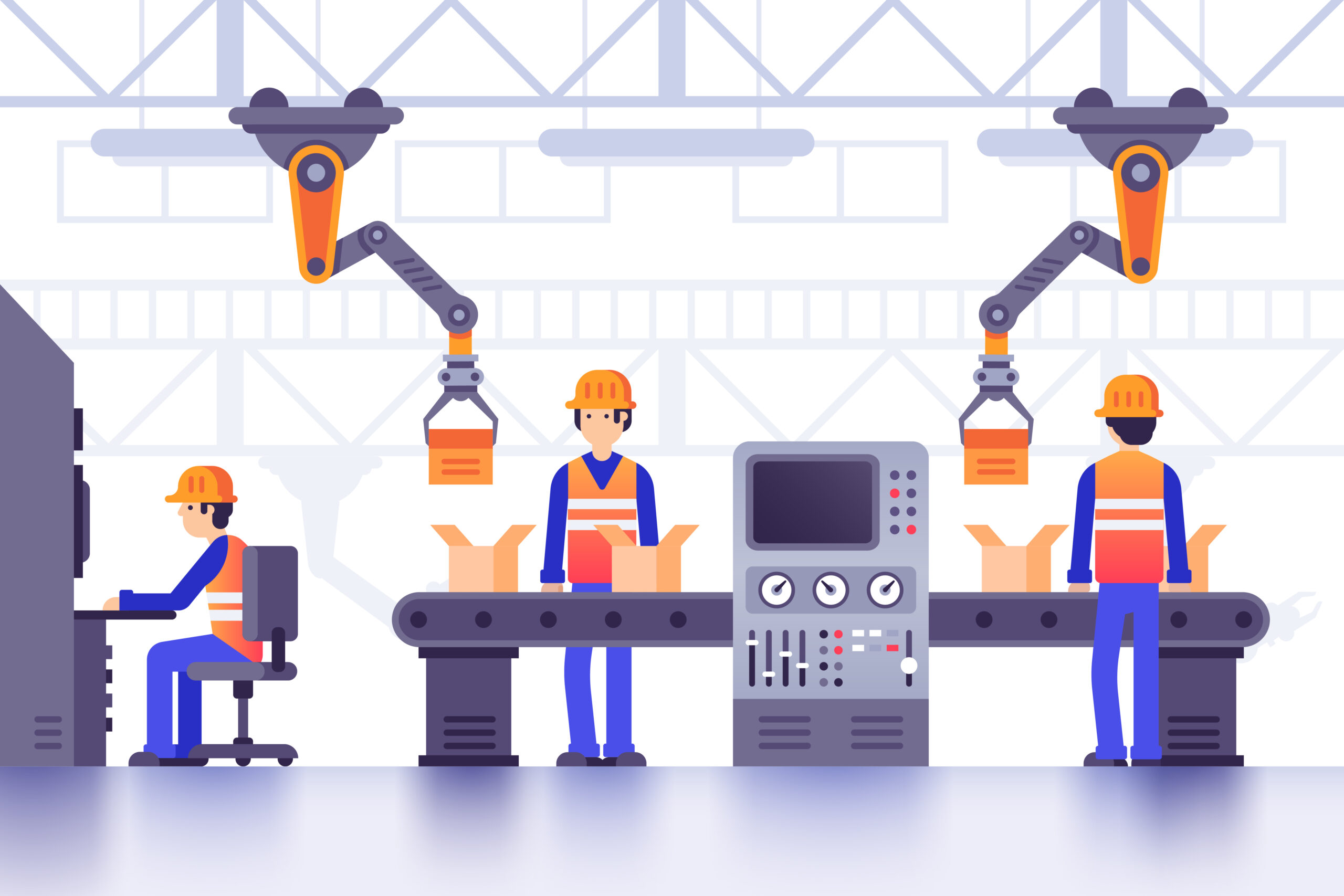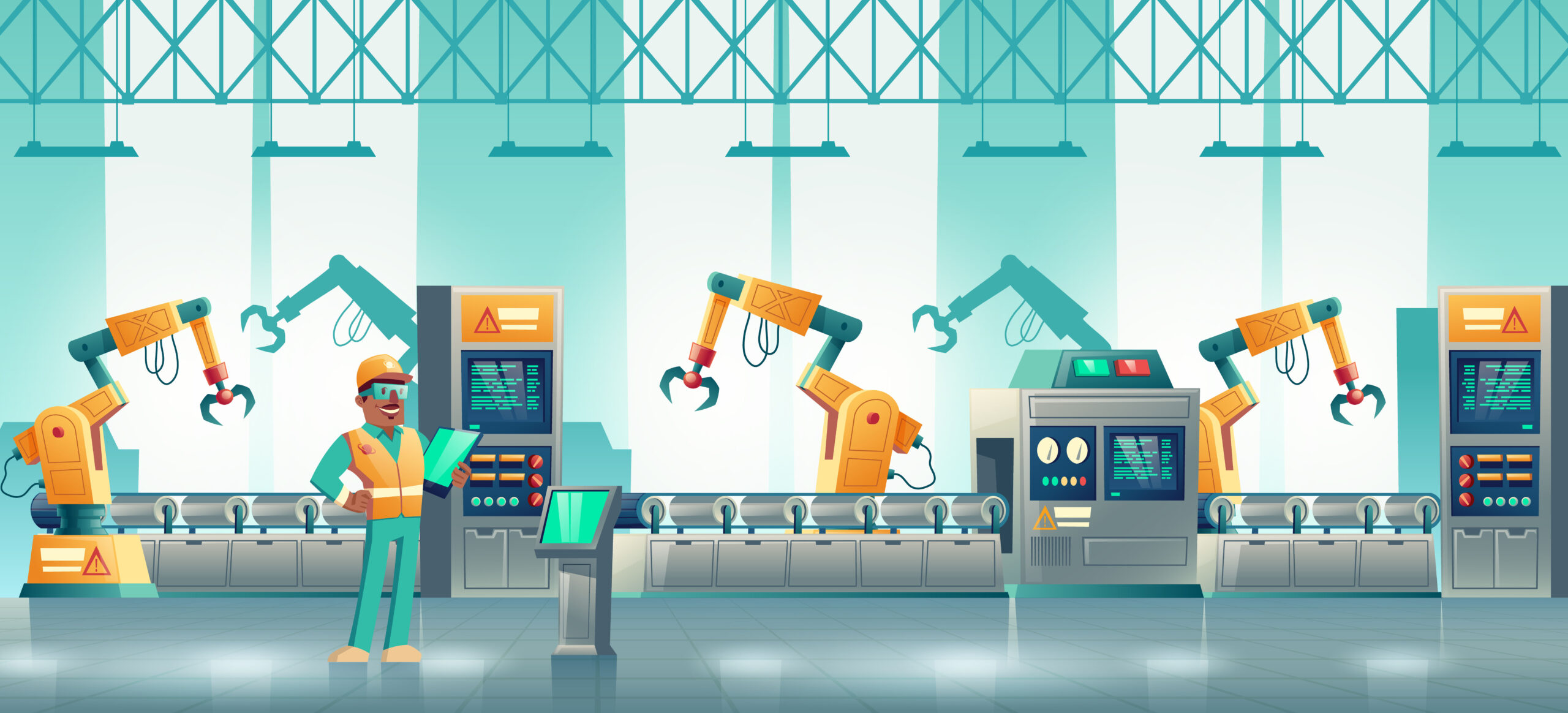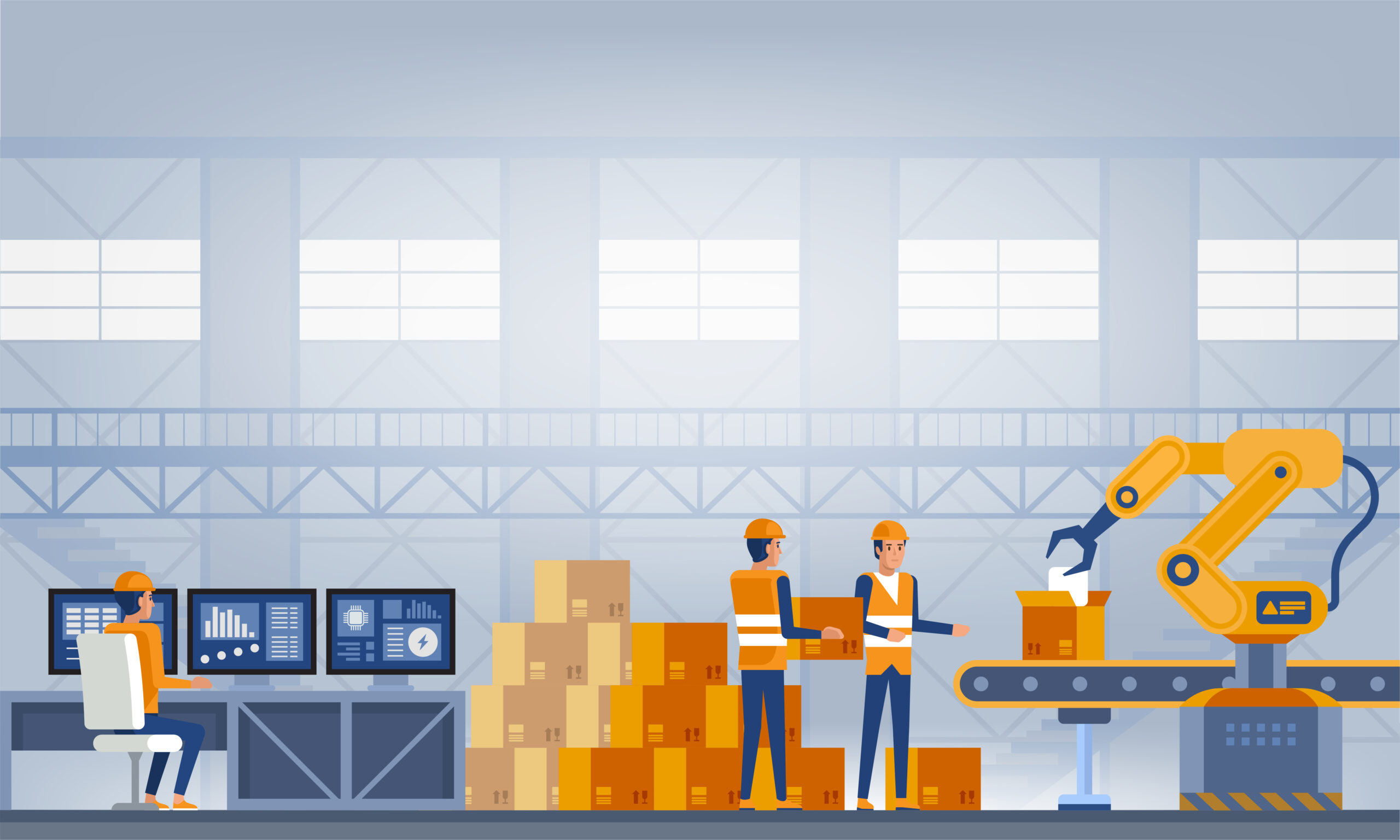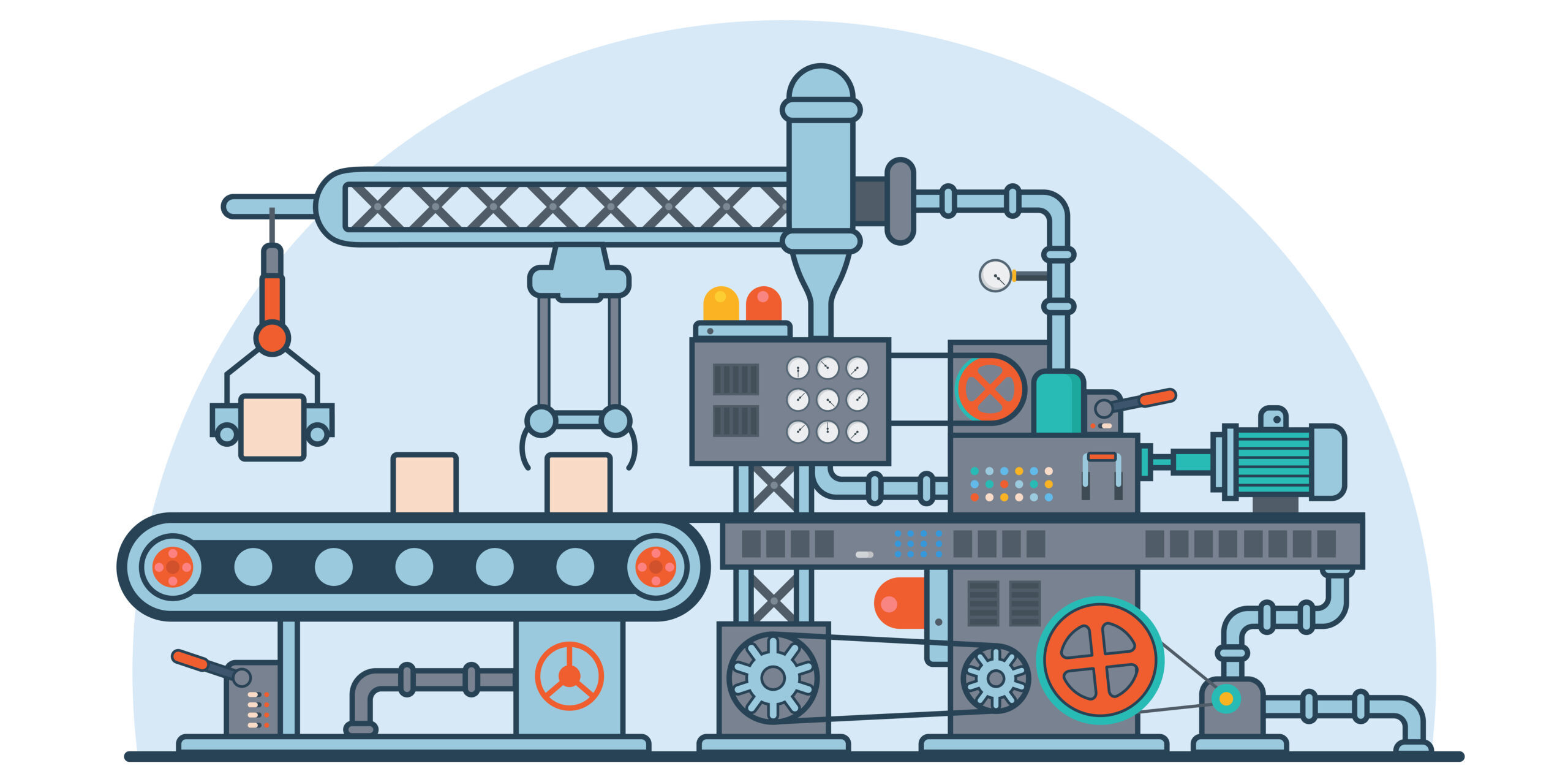5 Reasons to Partner with a Manufacturing Company That Adheres to Current Good Manufacturing Practices
Written by
Ramsay, In
Business,
Published On
December 8, 2023
,
594 Views
Due to population growth and chronic disease prevalence, the rising demand for pharmaceuticals has led to an influx of companies making ingredients used in manufacturing drugs. This trend can also be attributed to the outsourcing trend in the pharmaceutical industry. However, as a procurement authority for a pharmaceutical company, contract research organization, or nutraceutical company, you must be careful when choosing a company to source the ingredients. Ensure you work with those that adhere to current good manufacturing practices (cGMP). Here are the five reasons why doing so is essential.
5 Reasons to Partner with a Manufacturing Company

Regulatory Compliance and Quality Assurance
cGMP defines processes that ensure the quality, safety, and efficacy of pharmaceutical products. Therefore, sourcing from producers like API Manufacturing companies that adhere to cGMP is essential due to regulatory compliance. Such companies follow strict production guidelines, making their ingredients compliant with local and international regulations. Their strictness in following the guidelines set by cGMP also ensures high-quality ingredients. Do a background check on an ingredient manufacturing company before ordering to ensure they adhere to the mentioned guidelines.
Efficient Production Process
The guidelines issued by cGMP do more than check quality. They also ensure production efficiency in a well-documented manner. This enhances the production efficiency of companies that adhere to these guidelines because their production process is streamlined, with few errors. Partnering with such a company will streamline your company’s manufacturing workflow, which will save operation costs. In addition, a timely supply of ingredients from such a company prevents production hiccups or stockouts.
Consistency in Product Quality
Consistency in product quality is essential in whichever sector you are working in the pharmaceutical industry. And that can only be achieved if the quality of your ingredients is consistent. This is another reason you should insist on companies adhering to cGMP guidelines. Such companies have stringent quality control standards, run standardized operating procedures, and have real-time monitoring to maintain consistency.
Risk Mitigation
Non-compliance is a serious issue in the pharmaceutical and healthcare industry. That’s why regulatory agencies have frequent inspections to ensure adherence to cGMP. Working with companies that adhere to the measures put in place by such regulatory authorities mitigates the risks of your business being affected by non-compliance. As mentioned, your production will not stop due to a short supply of ingredients, and you won’t incur losses due to the recall of your end products.
Enhanced Customer Satisfaction
Working with producers like API Manufacturing that adhere to cGMP contributes to customer satisfaction. This is because, apart from the mentioned consistent manufacturing process, timely product availability, and reliability, such companies are transparent. Collaborating with cGMP-compliant companies positively influences your brand and creates a positive brand image. Such brand image enhances customer perception and loyalty.
The increasing need for pharmaceutical drugs has led to many companies producing ingredients. However, some use low-quality products in making the ingredients and need to follow set guidelines, which makes the end product unsafe for consumption. That’s why you should use the information you have read here to source the ingredients from cGMP-compliant companies. In doing so, you will benefit in the various ways you have read in this insightful piece.
Types of Manufacturing Companies

- Automobile Manufacturing: The automobile manufacturing industry is a cornerstone of industrialization, producing cars, trucks, and other vehicles. This sector involves a complex supply chain, incorporating the production of engines, chassis, and various components. Key players in this industry include well-known companies like Ford, Toyota, and Volkswagen.
- Electronics Manufacturing: The electronics manufacturing industry focuses on the production of electronic components, devices, and systems. This encompasses everything from semiconductors to consumer electronics and industrial equipment. Notable companies such as Samsung, Intel, and Apple are prominent players in this sector.
- Pharmaceutical Manufacturing: The pharmaceutical manufacturing industry is vital for producing medications and healthcare products. It involves the synthesis of pharmaceutical compounds, formulation of drugs, and the manufacturing of medical devices. Companies like Pfizer, Novartis, and Johnson & Johnson are major players in this field.
- Food and Beverage Manufacturing: This industry is responsible for the mass production of food and beverages. It includes processes such as food processing, packaging, and distribution. Well-known companies like Nestle, PepsiCo, and Tyson Foods are prominent players in the food and beverage manufacturing sector.
- Aerospace and Defense Manufacturing: The aerospace and defense manufacturing industry focuses on the production of aircraft, spacecraft, and defense equipment. This sector demands high precision and adherence to stringent quality standards. Boeing, Airbus, and Lockheed Martin are major contributors to this industry.
- Textile and Apparel Manufacturing: The textile and apparel manufacturing industry involves the production of fabrics, clothing, and other textile products. This sector has a significant global presence, with companies like Nike, Adidas, and H&M leading the way.
- Chemical Manufacturing: Chemical manufacturing encompasses the production of a wide range of chemicals, including petrochemicals, specialty chemicals, and industrial chemicals. Companies such as Dow Chemical and BASF are major players in this industry.
- Renewable Energy Manufacturing: With the growing emphasis on sustainable practices, the renewable energy manufacturing industry has gained prominence. This includes the production of solar panels, wind turbines, and other renewable energy technologies. Companies like Tesla and Siemens are contributing to the advancement of clean energy.
The manufacturing sector is a diverse and dynamic part of the global economy, with each industry playing a crucial role in meeting the demands of consumers and businesses alike. As technology continues to advance, manufacturing processes evolve, leading to increased efficiency, reduced environmental impact, and the emergence of new industries. Understanding the various types of manufacturing industries is essential for appreciating the complexity and significance of this critical economic sector.
Importance of Manufacturing Companies:

Manufacturing companies hold a pivotal position in the global economy, contributing significantly to economic development, technological progress, and employment generation. Their importance extends across various dimensions:
- Economic Growth: Manufacturing industries are major contributors to a nation’s GDP. The production of goods and services generates revenue, stimulates investment, and fosters economic growth. A robust manufacturing sector often serves as an indicator of a healthy and prosperous economy.
- Employment Opportunities: Manufacturing companies create job opportunities at various skill levels, from assembly line workers to engineers and technicians. The employment generated by these industries contributes to the overall well-being of societies by providing stable incomes and improving living standards.
- Innovation and Research: Manufacturing is synonymous with innovation. Companies in this sector invest heavily in research and development to improve processes, develop new products, and enhance efficiency. This commitment to innovation drives technological advancement and often has spillover effects in other industries.
- Global Trade and Competitiveness: Manufacturing companies are key players in international trade. Countries with strong manufacturing sectors tend to have a competitive edge in the global market. Exporting manufactured goods contributes to a favorable trade balance and enhances a nation’s economic standing.
- Supply Chain Integration: Manufacturing companies are central to supply chain ecosystems. They collaborate with suppliers and distributors, fostering an interconnected network that ensures the availability and timely delivery of products. This integration is crucial for the functioning of various industries, from retail to healthcare.
- Infrastructure Development: The presence of manufacturing facilities necessitates the development of robust infrastructure, including transportation networks, energy systems, and communication channels. This, in turn, benefits other sectors and contributes to overall economic development.
Future of Manufacturing Companies:

The future of manufacturing is marked by transformative trends that are reshaping the industry landscape:
- Industry 4.0 and Smart Manufacturing: The fourth industrial revolution, often referred to as Industry 4.0, involves the integration of digital technologies, automation, and data exchange into manufacturing processes. Smart manufacturing allows for more agile and efficient production, predictive maintenance, and enhanced customization.
- Advanced Robotics and Automation: Robotics and automation technologies are increasingly being adopted in manufacturing for tasks ranging from assembly to quality control. This trend not only improves efficiency but also addresses challenges related to labor shortages and workplace safety.
- Additive Manufacturing (3D Printing): Additive manufacturing is revolutionizing the production process by allowing for the creation of complex and customized products. This technology reduces waste, accelerates prototyping, and enables the manufacturing of components that were traditionally challenging to produce.
- Sustainability and Green Manufacturing: The future of manufacturing is expected to prioritize sustainability. Companies are adopting eco-friendly practices, reducing waste, and implementing energy-efficient processes. Sustainable manufacturing not only aligns with environmental goals but also meets the preferences of environmentally conscious consumers.
- Customization and Personalization: Consumer demands for customized products are driving manufacturing companies to embrace more flexible production processes. Technologies like digital manufacturing and advanced analytics enable mass customization, allowing companies to cater to individual preferences.
- Global Collaboration and Supply Chain Resilience: The future manufacturing landscape will likely involve increased collaboration among global partners. Building resilient and adaptable supply chains will be crucial, especially in the face of disruptions such as those seen during the COVID-19 pandemic.
In conclusion, the importance of manufacturing companies is enduring, and their future is dynamic and promising. Embracing technological advancements, sustainability practices, and agile production methods will be key for manufacturing companies to thrive in the evolving economic and industrial landscape.





















